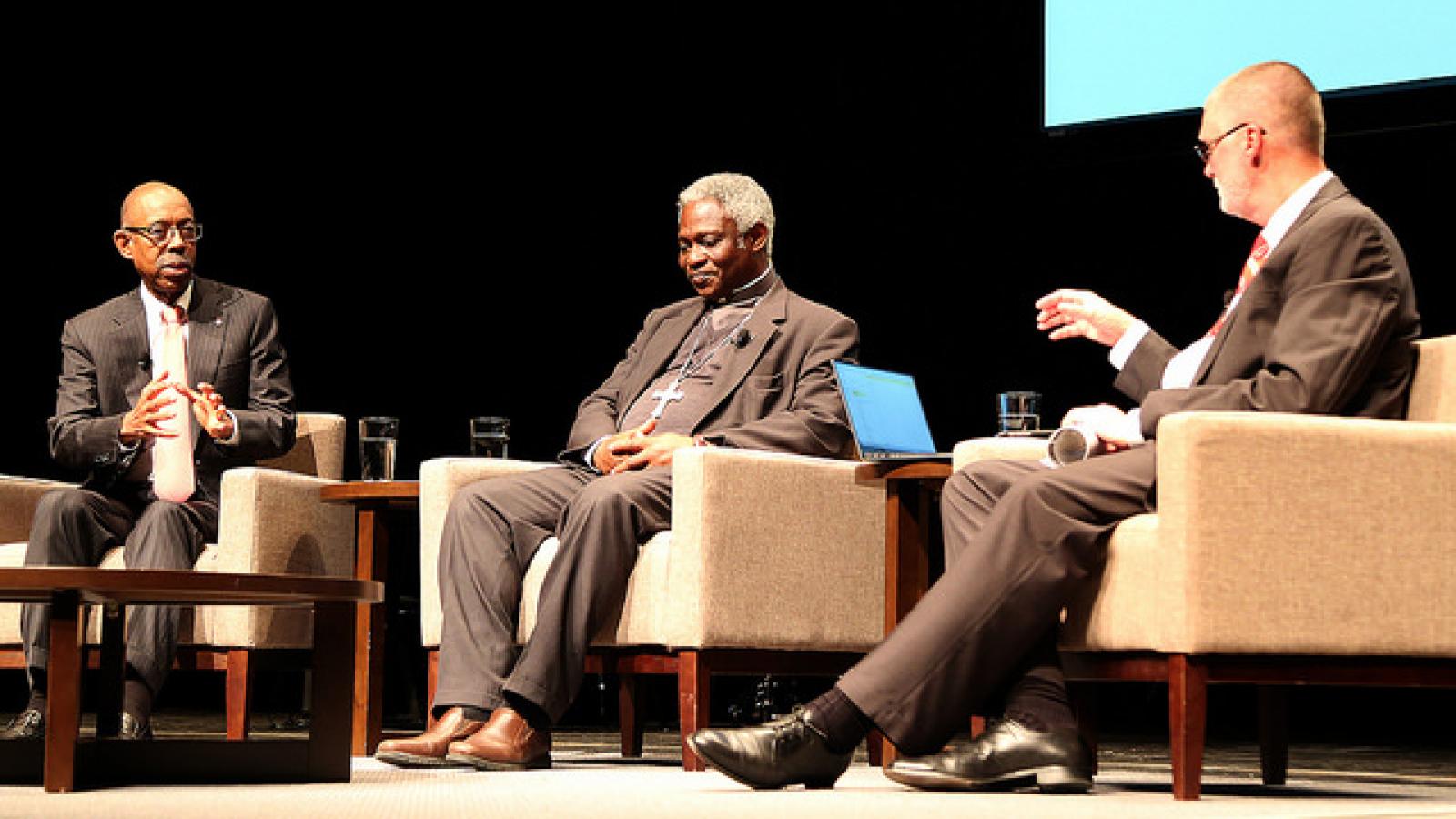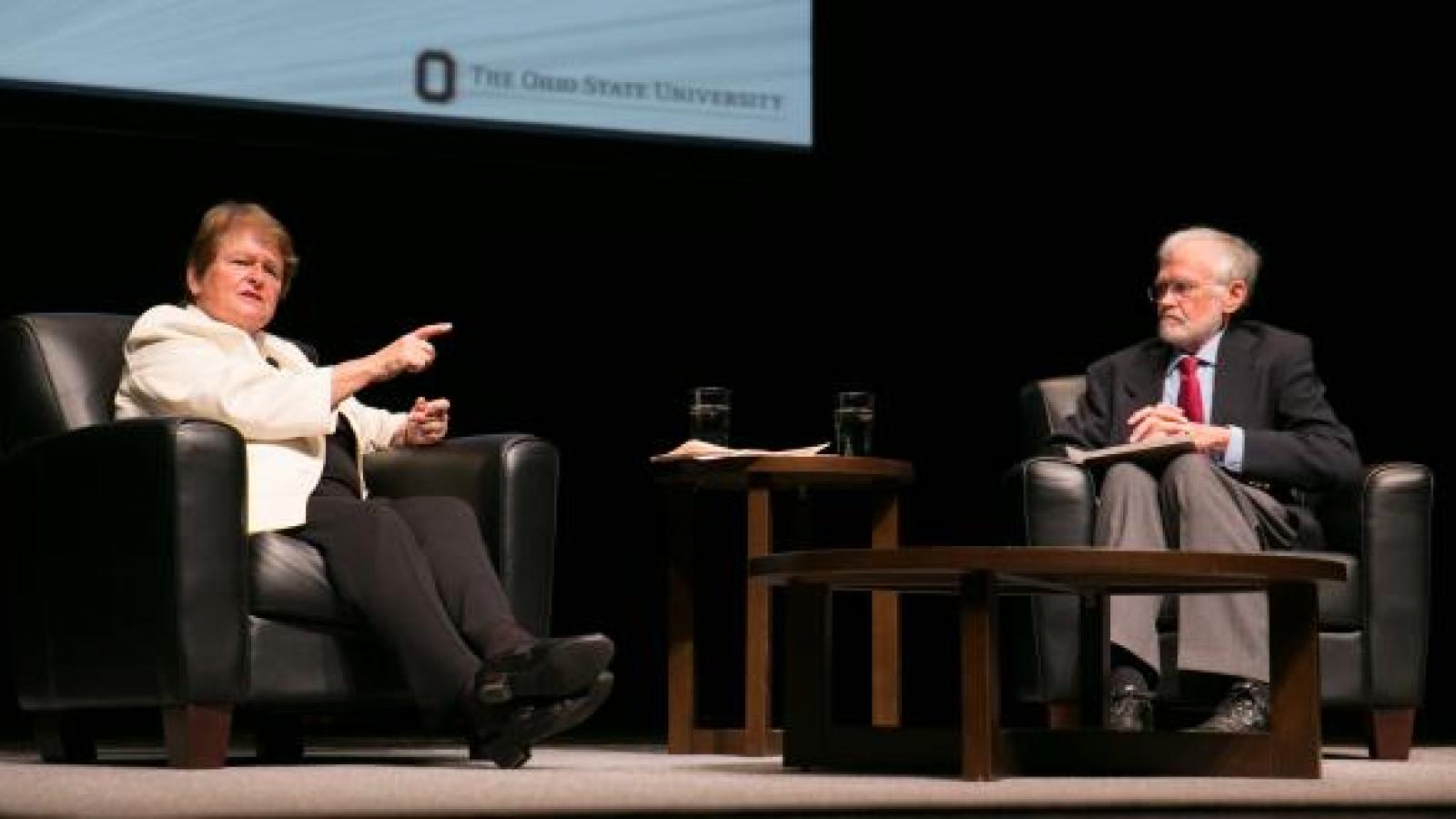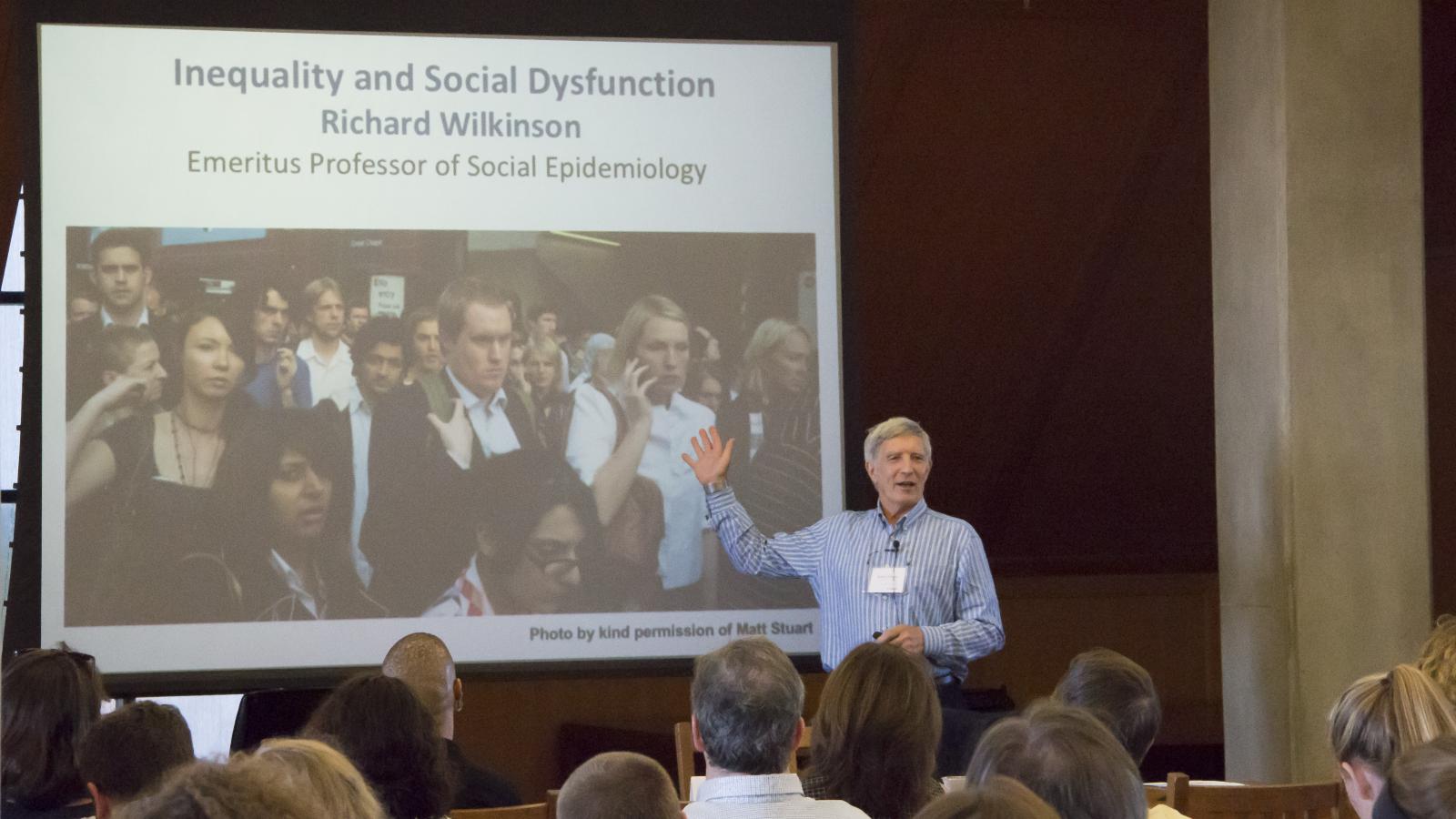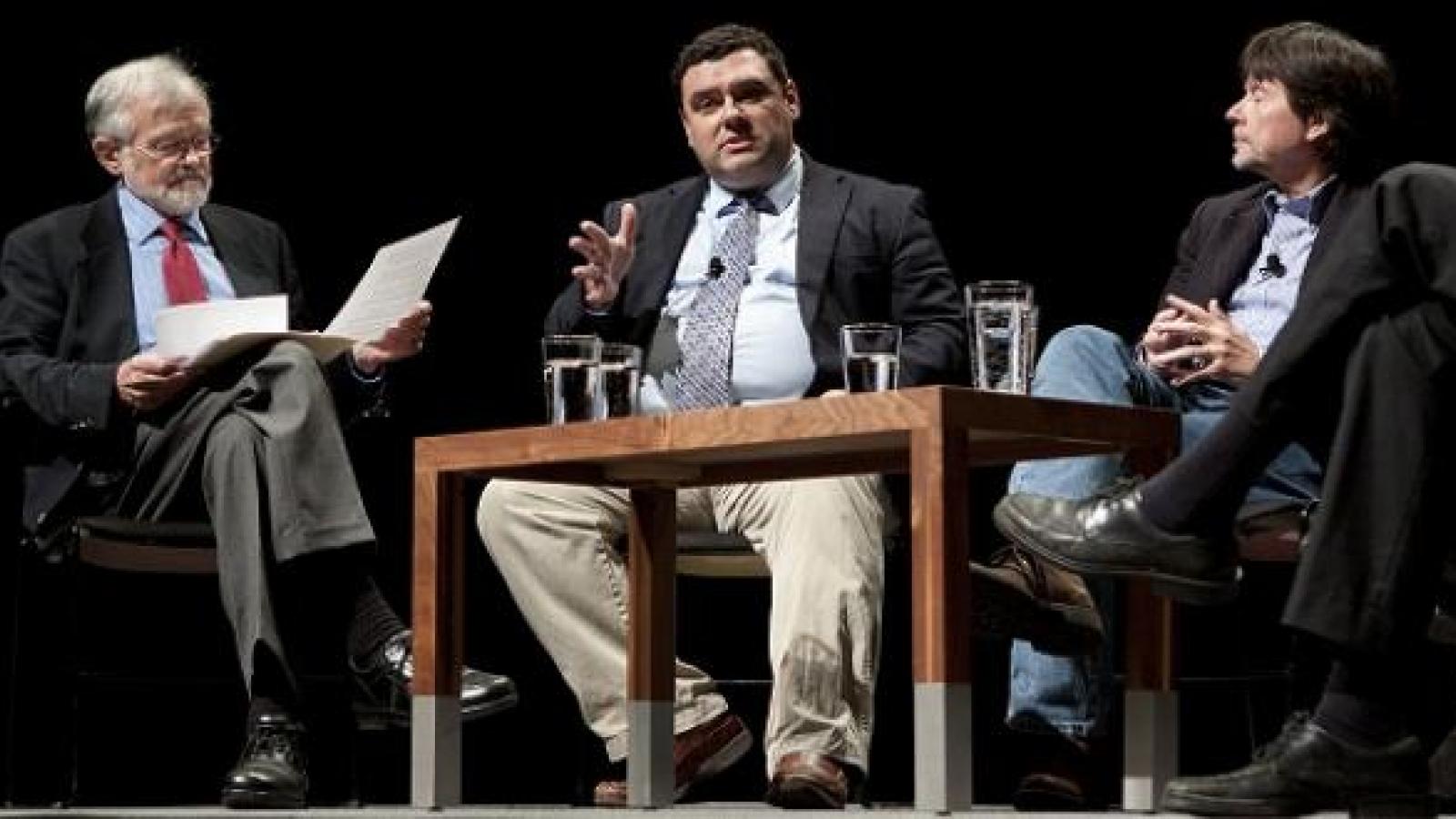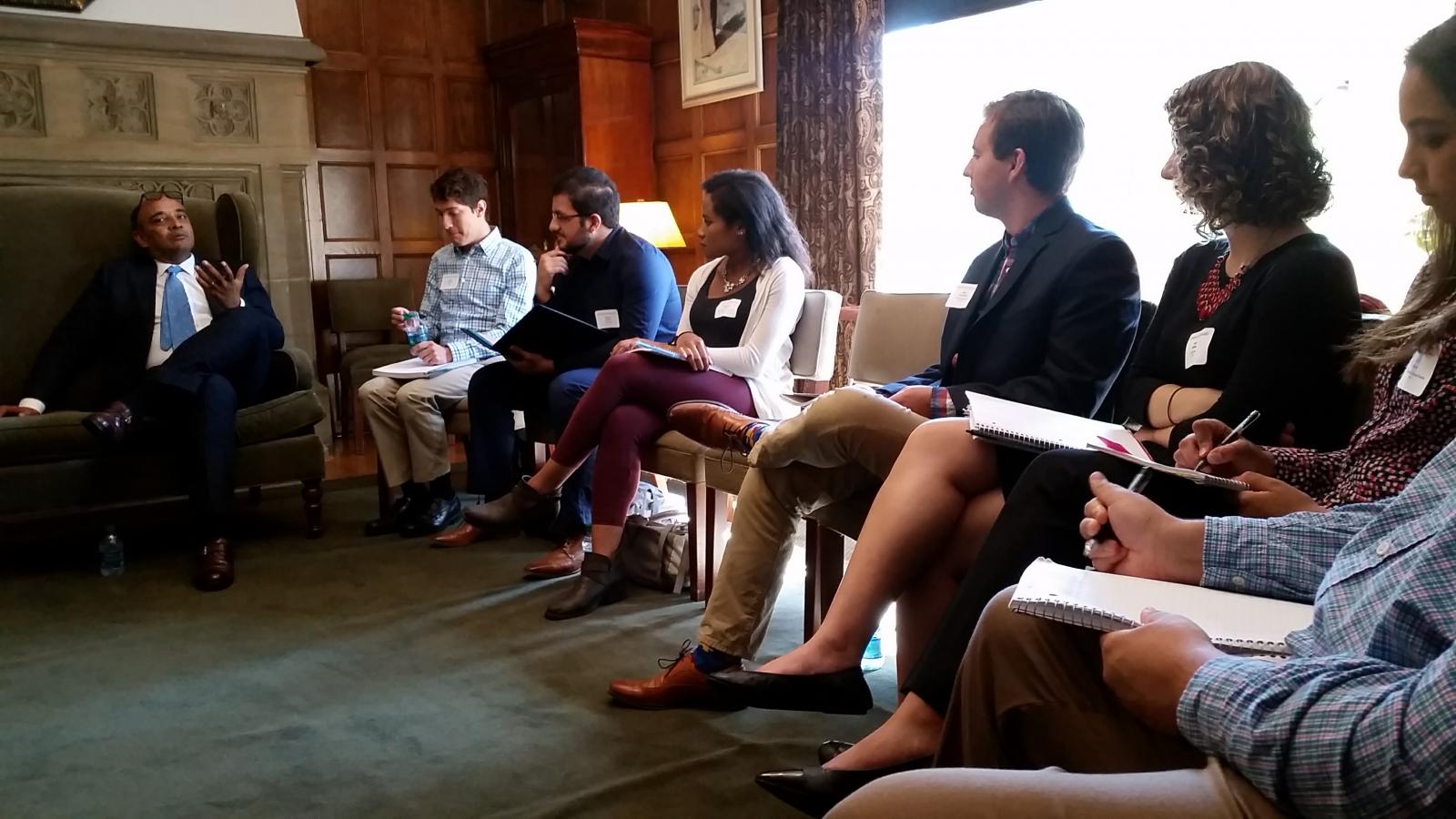Past COMPAS Programs
2017-18: Religion in Public Life
Across human cultures, religion has been one of the leading sources of both inspiration and conflict among individuals and groups. It has provided the motivation for some of the most significant movements for social reform, and for some of the most significant violations of fundamental moral norms. It has both supported and stood in opposition to domination and social hierarchy. Religious disagreements underlie some of the most contentious political disputes in this country and around the world.
2016-17: Inequality
The Conversations on Morality, Politics, and Society (COMPAS) program for 2016-17 focuses on the theme of Inequality. “Moral concern with inequality is about far more than economic inequalities,” said CEHV Director Don Hubin. “It is also about political, legal, educational, and health inequalities and how these interact with each other. And it’s about how these inequalities connect with underlying issues of race, gender, ethnicity, religion, LGBTQ status, geography, and other factors.” The 2016-17 program explores the complex ways in which inequalities in resources, opportunity, and treatment—for example, along lines of class, race, and gender—can produce or reinforce unequal outcomes in areas as diverse as health outcomes, criminal justice policy and practices, and political power.
2015-16: Sustainability
- The meaning of ‘sustainability’: What are we trying to sustain? A certain level of production and consumption? A certain way of life? A certain level of well-being?
- Sustainable institutions: What political, economic, and legal structures are needed to pursue sustainability at both the national and international level?
- The demands of global justice: How should the costs of developing sustainable global systems be divided between different countries and regions of the world?
- The demands of intergenerational justice: What sacrifices should current generations be willing to make for the sake of future generations?
- The individual’s role in promoting sustainability: What obligations do we have as individuals to develop and promote sustainable ways of life?
2013-14: Public/Private
The Conversations on Morality, Politics, and Society (COMPAS) program for 2013/14 focused on the distinction between Public and Private. This theme connects a wide range of pressing policy questions and fundamental scholarly problems across seemingly disparate domains. Movements for social justice often press their cases by arguing that supposedly personal matters are in fact political and that the structure of public spaces often limits private choice, thereby reducing the impact of individual responsibility. Conversely, governments have experimented with privatizing a variety of previously public functions and services such as prisons, roads, schools, and the military. Developments in information technology, genetics, and neuroscience raise new moral, legal, and practical questions about personal privacy. And the ubiquity of internet use and social media have changed the way we conduct our personal and social lives in respects that invite reflection on the distinction between public and private activity. Thus, in addition to being a matter of enduring political and academic interest, the way in which societies define issues as public or private has important implications for the fundamental ethical question of how to live a good human life. Our year-long program explored the many facets of these complex and critical issues and mobilized Ohio State’s multiple disciplinary perspectives and diverse resources to promote informed, civil discussion of the ever-shifting relationship between the public and the private.
2011-12: Immigration
Immigration’s importance as a social issue is rivaled only by its complexity. However, public discourse on the topic rarely reflects that complexity. Too often we get facile slogans rooted in poor information and shallow reasoning, expressed with deplorable incivility. OSU is uniquely well placed to raise the level of discourse by bringing students, scholars, public officials, organizations within civil society, and the general public into dialog with one another. Indeed, the interlocking array of issues posed by immigration is practically pan-disciplinary, making it an ideal choice for a university-wide academic initiative. The moral urgency of these issues makes it an incumbent choice for reaching beyond the university. In 2010, the Center for Ethics and Human Values Innovation Group proposed its first COMPAS Program, a year-long “conversation” on the topic of immigration during the academic year 2011-12.

